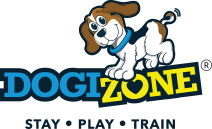Tips for Taming Your Aggressive Dog
You don’t have to be a dog whisperer or understand pack mentality to recognize the signs of dog aggression. Antagonistic behavior from any animal can be downright dangerous, and yes, even the smallest breed of dog can cause serious injury, particularly to children. Since 90% of dog bites happen to someone that the pet knows, you can’t afford not to take action concerning your dog’s aggressive behavior.
Why Are Dogs Aggressive?
Dogs are instinctual creatures, and when these instincts surface through aggressive behaviors, it largely indicates that your pup is controlling the situation, not you. The most common types of aggressive behaviors in dogs:
- Territorial
- Dominant
- Fearful
- Predatorial
These behaviors can develop for several reasons including health issues, an overly aggressive owner, lack of socialization and excessive punishment.
Deter Aggressive Dog Behavior Early
Like a child who believes that he is “owed” something, dogs have a way of making us succumb to their desires, and when they are always given what they want they continue to expect it. When their commands aren’t followed, violent tendencies and aggression can surface.
As soon as you notice the signs of aggression, it’s advisable to seek professional dog training from an experienced instructor who understands how to curb these behaviors. Meanwhile, do your best to set rules and boundaries with your dog, and let him know who’s really in charge in a gentle and loving way.
Tips for Dealing with Dog Aggression
If you aren’t sure where your dog stands concerning the need for professional help, take our Online Dog Training Assessment, and we’ll get back to you with detailed information about controlling your aggressive dog. Here are some additional tips to help you cope with your aggressive dog until beginning aggression training.
Socialization – Dogs that aren’t socialized often foster an attitude of “the best offense is a solid defense.” Not knowing how to deal with other animals or humans can cause your dog to take a defensive and aggressive stance, so do your best to get your pup into the social scene.
Positive Reinforcement – Don’t punish your dog for his aggressive behaviors, as this can incite an aggressive response from your pet. Avoid chaining or harsh corrections, and focus on praising your pet’s good behavior for now.
Dog Training for Aggression – Both puppies and old dogs that need to learn new tricks can benefit from dog aggression training provided by one of the expert trainers at Canine Obedience Unlimited.
Most dog owners opt to take on a new furry family member filled with joy just thinking about all the fun and exciting times to come, but an aggressive dog can put a damper on that dream rather quickly. Take action now and get help with dog aggression to create, restore, or preserve that special bond with your four-legged friend.
